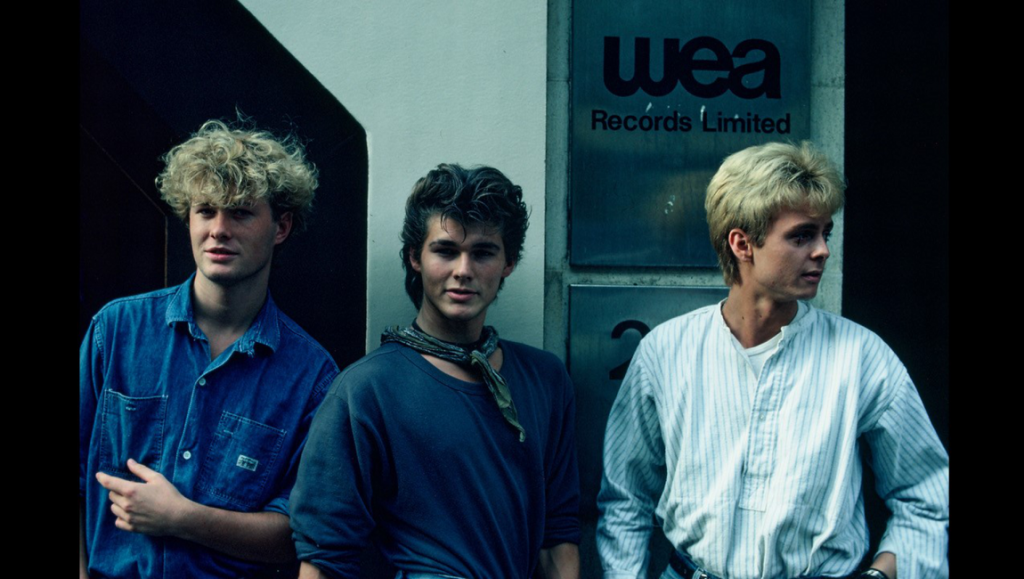A-ha: the Movie is a pure trifle, not always substantial but capable of casting viewers back into a distinctly ’80s mood.
Before childhood friends Magne Furuholmen and Paul Waaktaar-Savoy were joined by singer Morten Harket to form their synth-pop trio A-ha, and while they were still known as an underground act called Bridges, the duo stated in their first ever interview (with a local Norwegian newspaper): “We’re going to be international pop stars. Norway’s too small for us.” The music scene of Oslo in the early and mid-’80s was almost entirely dominated by dancehall groups, with no sign of famous domestic pop or rock to be found. Perhaps because of this, A-ha, whose musical vision and unique artistry drew no influence from their local surroundings — and instead was more influenced by the works of Joy Division and The Velvet Underground — headed to London to pursue their dreams. And after only a few short years of struggling to find a trusting record label and a proper producer, the group at last released a single, one which would suddenly turn into one of the eminent hits of the ‘80s and eventually represent the most popular song the band has ever recorded — “Take on Me.” Their 1984 hit brought them massive, lasting fame and success, its place in pop culture history so pronounced that plenty today may have forgotten the group was responsible for delivering many other popular tracks, including even a James Bond original — “The Living Daylights.”
But regardless of their stardom and unquestionable influence on later musical artists — hitmakers like Coldplay and Oasis, for example — A-ha’s history is not exactly one of those big stories rife with sell-out myths, tales of career adventures, or cautionary tales of savage ups and downs, twists and turns. Apart from their early struggles and difficulties at achieving initial success, as well as the later escalating individual differences concerning artistic decisions and creative tensions that led to temporary split-ups in which members pursued solo or side-projects until their eventual reunions — standard-issue developments that many popular groups have endured — A-ha’s story isn’t particularly extraordinary.
It follows, then, that A-ha: The Movie, directed by Thomas Robsahm and Aslaug Holm (also acting as DP here), is a very typical documentary that offers not much more than what A-ha’s fans likely already know, or else anything that a viewer who’s familiar with music documentaries cannot otherwise anticipate. Robsahm and Aslaug never really move toward any in-depth reflection upon the artistic authenticity, singularity, and legacy of A-ha — the film is fairly devoid of evaluation from music historians or critics, and also restricts the presence of the bandmates’ life-partners, producers, and managers to voiceover — and instead fix their attention on talking-head interviews with the band, sticking to a casual, even slightly introverted vibe that the three members seem to be most comfortable with off-stage. Combining archival footage and modern-day portrayals of the group (mostly as separate individuals), while also incorporating occasional animated moments — intentionally rendered in the style of Steve Barron’s work on the “Take on Me” music video, of course — Robsahm and Aslaug try to bring a little flair to the otherwise straightforward film. That’s to say, the whole thing mostly scans as an inevitable and faithful audiovisual documentation, with a few creative fillips. The experience is perhaps best summed up with a few stolen words from the lyrics of A-ha’s iconic megahit: the documentary has its “odds and ends,” hardly enthusiastic praise, but here it’s sometimes enough to cast viewers back into a distinct and enjoyable ‘80s mood.
Originally published as part of Tribeca Film Festival 2021 — Dispatch 4.


Comments are closed.